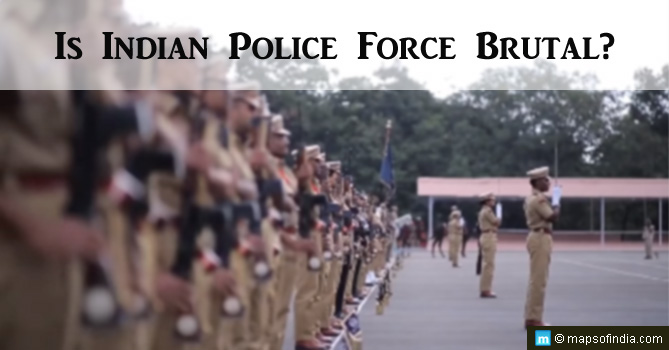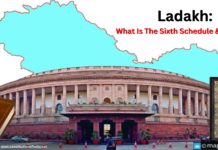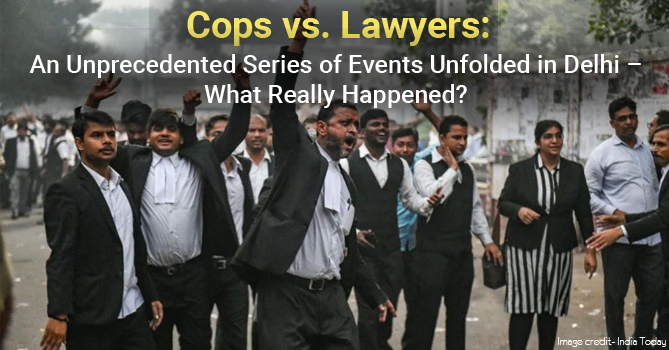
Last week, social media was abuzz with a few disturbing videos, and thousands of tweets from tweeple on an incident of police brutality in Delhi. In a few videos, a Gramin Seva tempo driver and his minor son could be seen being mercilessly beaten up next-door to a Police Station in Delhi’s Mukherjee Nagar. Guess by who? Yes, by the police itself. However, the father-son duo’s version about police atrocity also came into doubt when some subsequent videos showed them colliding with an Emergency Response Vehicle, arguing with the police personnel, chasing them with a sword, and even physically assaulting them. Now the entire sequence of events is being investigated by the Delhi Police Crime Branch. But to millions, this incident reaffirmed that when it comes to highhandedness, no one can surpass the police. Of course, countless video grabs are doing the rounds and many theories have emerged, but what is bound to stick is police was brutal when there was a need for more professional conduct.
Some would say we inherited police brutality from the colonial days of the British Raj. They will take you back to April 13, 1919 and talk about the Jallianwala Bagh Massacre. A few would take you futher back to the execution of 5th Guru of Sikhs – Guru Arjan, on the orders of the Mughal Emperor Jahangir in May-June 1606. Closer to the times we live, post independence, first recorded incident of police brutality is cited as the killing of the Maharaja of Bastar, Pravir Chandra Bhanj Deo and 11 others of the royal family/connect on March 25, 1966. They were reported to have been shot dead at point blank range in the palace itself.
At times, it does look like police follows its own course and exceeds its role in the law enforcement process. Why just process, they sometimes seem to take over the duties of dispensing justice too. Extra judicial killings are fairly common. Encounter specialists have been doubted and challenged for their accounts over the years. And police’s role in high profile cases regularly comes into question.
However, can we just blame our police force for that? Maybe not. In newspapers, we daily read accounts of how police catches culprits with great difficulty, but they easily get bail, despite being repeat offenders. As the judicial process drags on, eyewitnesses turn hostile in courts. Talk to any policeman worth their uniform, and they would tell you how difficult it is to catch the ‘real man’ behind an offense, and how easy it is for offenders to get out on bail, often even before the uniform is removed for the day. They would talk about the politician-criminal nexus and vote bank politics as the malaise affecting police as an institution in our country. One has to agree that this impacts the police force’s morale and motivation to catch the culprits, and take each case to its logical conclusion. Needless to say, as a nation we report very low rate of conviction.
Well-read and well-meaning police officers cite shortage of staff for corruption, lack of effectiveness and incidence of brutality. They quote facts like – against a global (and acceptable) average of 225 police personnel required for every 100,000 people, India has less than 150. The actual number is significantly lower if you count out those who are on special duties of protecting politicians and such. They insist that the number of new cases filed and the number of new “protectees” added in any given year is always much more than the manpower addition in the police force. To crack a case, you need an investigator, at least one, dedicated to that case. However, they factually state that, in India, an investigator may have 20 cases simultaneously undergoing investigation!
Moreover, the challenge doesn’t end at allocating an investigator to a case. It actually begins for them at that stage, as forensic labs and our infrastructure is grossly inadequate, archaic and belongs to a bygone era.
There indeed is a need for our government to take a holistic view of policing in India, and to do a complete rethink of what is needed and how it can be assembled together. Time has run out, but a fresh start won’t hurt us any more than what we are already suffering. With the second highest population in the world, law and order should urgently become a priority. India should aim for a top 10 rank in policing, rather than languishing in the bottom 50 (as per UNCDC data).
Related Link:
Taking Pictures of Accident Victims: No Sense of Moral Wrongdoing?




